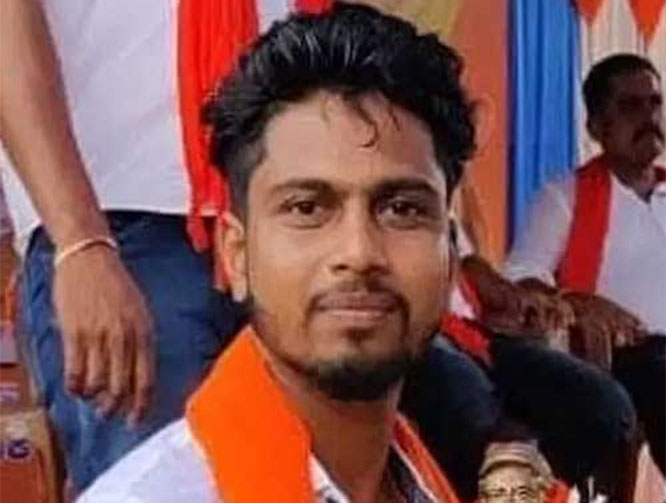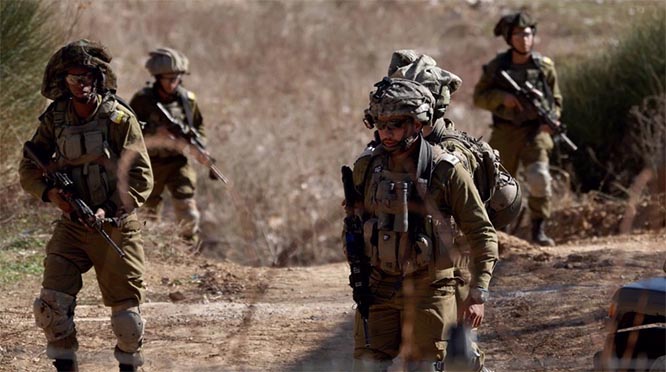Mumbai, Feb 20: Nirav Modi, the kingpin behind the largest banking scam in the country's history, has virtually wrung his arms in the air saying PNB's overzealousness has shut the doors on his ability to clear the dues, which he claimed is much lower than what the bank has gone public with.
In a letter Modi wrote on February 15/16 to the PNB management, a copy of which PTI has seen, he pegged the amount his companies owes to the bank under Rs 5,000 crore.
"The erroneously cited liability resulted in a media frenzy which led to immediate search and seizure of operations, and which in turn resulted in Firestar International and Firestar Diamond International effectively ceasing to be going-concerns.
"This thereby jeopardised our ability to discharge the dues of the group to the banks," Modi, who left the country along with his family in the first week of January, wrote in the letter.
"In the anxiety to recover your dues immediately, despite my offer (on February 13, a day before the public announcement, and on 15,) your actions have destroyed my brand and the business and have now restricted your ability to recover all the dues leaving a trail of unpaid debts,"he said.
The letter also refers to the extended discussions between him, and between his representatives and the bank officers and also his emails on February 13 and 15, 2018.
It can be noted that PNB, the second largest state-run bank, had on February 14 informed the exchanges of detecting USD 1.77 billion fraud at its Brady House branch in Horniman Circle area of south Mumbai and named the firms led by Modi and his uncle Mehul Choksi's Gitanjali Group and some other diamond and jewelry merchants as suspects.
The bank has also filed criminal complaints with CBI and the ED, both of which launched nationwide searches on dozens of offices and residences of the alleged fraudsters.
The bank has named Modi's brother, his American wife Ami, and uncle Choksi besides some others in the FIR.
On the over Rs 11,000-crore loss claimed by PNB in the FIR, Modi said, "as you are aware, this is entirely incorrect and the liability of the Nirav Modi Group is substantially less. Even after your complaint was filed, in good faith I wrote to you saying please sell/allow me to sell Firestar Group, or their valuable assets, and recover the dues not just from Firestar Group, but also from the three firms."
Valuing his domestic business at around Rs 6,500 crore, he said "this could have helped reduce/discharge the debt to the banking system," but quickly added that this is not possible as all his bank accounts have been frozen and assets have been sealed or seized.
He goes on to state that PBN had time and again acknowledged that "the buyers credit facility has been extended by it to the three partnership firms since several years; that there has been no default on the part of any of these firms over all these years; that money has gone through PNB over all these years for the repayments of the advances given by the overseas bank branches under the buyers credit.
"That Firestar International and Firestar Diamond International have never been in default to any bank, and the bankers are fully secured".
He also states that PNB has over the years been earning bank charges to the tune of crores of rupees on the buyers credit facility extended by PNB to the three partnership firms and that PNB has extended the money to the firm's buyers as well from where also it has been receiving full payments, with interest and on time all, these years.
On the valuables that CBI/ED searches yielded Rs 5,649 crore, he said "these, and other assets of the group and the three firms could have settled all the amounts due to banks. However, now that stage appears to have passed."
He concluded by requesting the bank to "be fair, and support my efforts to make good all the amounts that are found due by my group to all banks."
Owning up everything, he said the bank has wrongly named his brother, who is not at all concerned with the operations of the three firms or other companies.
"My wife is not connected with any business operations at all and she has been wrongly named. My uncle is also wrongly named in this complaint since he has an independent and unconnected business and none of them are aware or concerned with my dealings with your bank."
"Whatever may be the consequences I may face for my actions, the haste was, in my humble submission, unwarranted," Modi conludes and makes has requested the bank to permit payment of salaries to 2,200 employees from the balance lying in the current accounts.







Comments
Add new comment